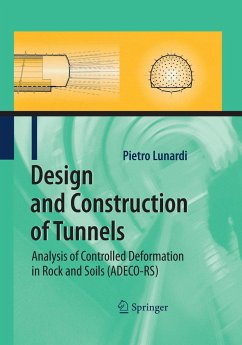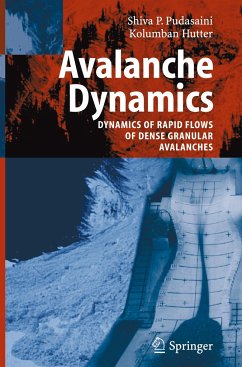
Design and Construction of Tunnels
Analysis of Controlled Deformations in Rock and Soils (ADECO-RS)
Versandkostenfrei!
Versandfertig in 6-10 Tagen
130,99 €
inkl. MwSt.
Weitere Ausgaben:

PAYBACK Punkte
65 °P sammeln!
This work, written by a leading Italian expert, illustrates how the Analysis of Controlled Deformation in Rocks and Soils (ADECO-RS) is used in the design and the construction of tunnels. This is a very new and effective way of tunnel construction.
To those who believed... Geological hazard and the lack of appropriate survey, design and construction inst- ments for tackling those terrains we call "diffcult", with good prospects of success, have always made the design and construction of underground works a risky affair, which could not therefore be faced with the same degree of accuracy as other civil engineering works. As a consequence they have always occupied a subordinate position with respect to similar surface constructions and in the past they were only resorted to when the latter seemed impractical or of little use. However, decisive progress made in the feld of geological surveys, the availability of powerful computers for making calculations and above all the introduction of exca- tion technologies that are effective in all types of ground have created the conditions for a qualitative quantum leap forward. The last formidable negative factor to be overcome to achieve that transparency in this feld, which has untilnow been the prerogative of traditional surface works, remains the absence of a modern and universally valid design approach, capable, that is, of integrating and exploiting the new capabilities and of gu- ing the design engineer through the stages of design and construction.














